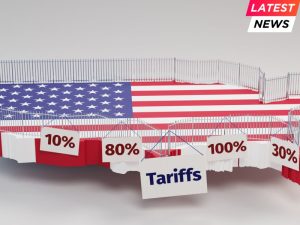A growing number of international students and scholars are being forced to leave the United States as the Trump administration aggressively revokes student and exchange visitor visas, citing broad national security and immigration enforcement powers.
Once seen as a symbol of opportunity, the F-1, M-1, and J-1 visas—used by students attending academic and vocational institutions or participating in cultural exchange programs—are now at the center of controversy. Since the start of Donald Trump’s second term, visa revocations have surged, prompting lawsuits and allegations of politically motivated targeting.
Dozens of universities, including Harvard and Stanford, have been blindsided by visa cancellations. In some cases, institutions were notified only through updates to the Student and Exchange Visitor Information System (SEVIS). A recent incident involving Tufts University doctoral candidate Rümeysa Öztürk, who was handcuffed by federal agents in Massachusetts without prior notice of her visa revocation, drew global attention. Öztürk’s lawyers say she’s being punished for her pro-Palestinian views.
The Department of Homeland Security claims Öztürk supported Hamas, though no charges have been filed. Her case is one of many involving students who say their only offense was voicing support for Palestinians in the Israel-Hamas war. Immigration attorney Dustin Baxter said the government has revoked visas based on mere arrests or even minor encounters with law enforcement.
Students and legal residents from institutions like Columbia and Stanford have found themselves under removal orders. A lawsuit in federal court alleges over 100 students were stripped of their right to study and work in the U.S. without due process. Some were told to leave the country within seven days, with ICE warning: “Do not attempt to remain in the United States. The federal government will find you.”
Meanwhile, the State Department, under Secretary of State Marco Rubio, has cited “serious adverse foreign policy consequences” to justify sweeping revocations. Visa terminations can occur even without formal charges or convictions, under provisions allowing broad executive discretion.
Even green card holders are not exempt. Columbia University activists Mahmoud Khalil and Mohsen Madawi, both pro-Palestinian advocates, are now fighting deportation after losing their legal resident status earlier this year.
In March, Dr. Rasha Alawieh, a Brown University professor, was deported after attending the funeral of Hezbollah leader Hassan Nasrallah in Iran, raising further alarms about the administration’s expanding definition of foreign policy threats.
Visa revocations are nearly impossible to appeal. A 2024 Supreme Court ruling confirmed the Secretary of State’s discretion to revoke visas for any “good and sufficient cause.” Once a visa is revoked, students cannot apply for a new one until they’ve been outside the U.S. for five years.
While the number of F-1 visa approvals has recovered since the COVID-19 pandemic, 2024 figures remain below the 2015 peak. Analysts cite a chilling effect from Trump-era immigration policies, with many universities reporting international students feel unwelcome.
Trump once tweeted that international graduates should be allowed to stay. Now, his administration has canceled more than 1,000 scholars’ visas—with more expected to follow.
Related Readings:








































